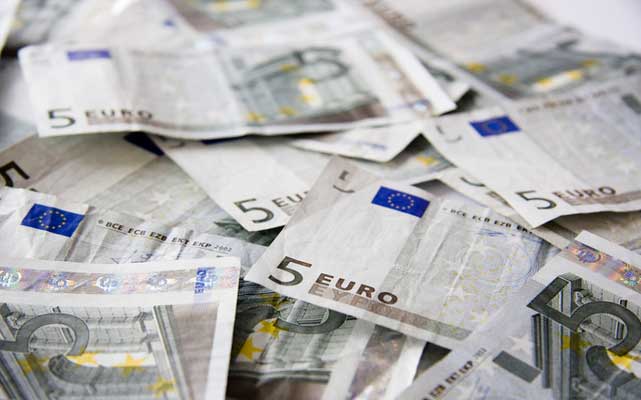Pound to Euro Forecast: Warning of GBP Slide Below 1.1400
- Written by
Frank Davies

Support for the euro is firming as Commerzbank points to German fiscal stimulus driving a rebound in Euro-Zone growth. Against that backdrop, the Pound to Euro (GBP/EUR) exchange rate is struggling near 1.1450, with Lloyds Bank cautioning that fiscal stress may drag Sterling below 1.1400 in the months ahead.
The Pound to Euro (GBP/EUR) exchange rate has avoided a fresh decline to 2-month lows, but has struggled to make any headway and is trading just above 1.1450 with some support from gains in UK equities.
Lloyds Bank sees scope for GBP/EUR to dip below 1.1400 amid concerns surrounding UK fundamentals.
Markets will continue to monitor UK bond markets closely, especially given the Pound sensitivity to fiscal stresses.
The 10-year yield is currently trading around 4.72% from 4.74% at the open. There are concerns that the US shutdown will put upward pressure on yields and potentially trigger a fresh sell-off in UK bonds.
There have also been strong indications that the government will remove the 2-child benefit cap in the November budget which would put upward pressure on spending. This would increase pressure for tax hikes to enable the government to meet fiscal rules.
There remains a risk that prolonged tax chatter will undermine activity in the short term.
Lloyds Bank considers that the government will be unable to escape from the straitjacket and Pound losses could be a release valve; “Given the constraints that leaves us looking at other potential adjustment paths. The currency stands out as the most liable level.”
In contrast, Commerzbank economists expect Euro-Zone support from German fiscal policy; "We remain optimistic over the medium term that German fiscal stimulus will have a material impact on economic growth, with positive spillover effects for the rest of Europe.”
It added; “Economic incentives are clear given Germany’s fiscal space and lack of growth in recent years; political incentives stem from the threat from the far-right in next year’s regional elections."
The headline Euro-Zone consumer inflation rate increased to 2.2% for September from 2.0% and in line with consensus forecasts while the core rate was unchanged at 2.3% and also in line with expectations.
There will be expectations of a stable ECB policy in the short term, underpinning the Euro.
Elsewhere in the UK, Nationwide reported that UK house prices increased 0.5% in September after a 0.1% decline the previous month with the annual increase at 2.2% from 2.1%.
Nationwide's Chief Economist Robert Gardner commented; “Despite ongoing uncertainties in the global economy, underlying conditions for potential home buyers in the UK remain supportive.”
The UK PMI manufacturing index was unrevised at 46.2 for September and confirmed at a 5-month low.
Rob Dobson, Director at S&P Global Market Intelligence commented; “Manufacturers are facing an increasingly challenging environment, with intakes of new business and levels of production hit by weak market sentiment, a dearth of new export work and a high-cost environment exacerbated by tax and labour cost rises.”
STORY LINK Pound to Euro Forecast: Warning of GBP Slide Below 1.1400

Support for the euro is firming as Commerzbank points to German fiscal stimulus driving a rebound in Euro-Zone growth. Against that backdrop, the Pound to Euro (GBP/EUR) exchange rate is struggling near 1.1450, with Lloyds Bank cautioning that fiscal stress may drag Sterling below 1.1400 in the months ahead.
GBP/EUR Forecasts: Unable to Make Headway
The Pound to Euro (GBP/EUR) exchange rate has avoided a fresh decline to 2-month lows, but has struggled to make any headway and is trading just above 1.1450 with some support from gains in UK equities.
Lloyds Bank sees scope for GBP/EUR to dip below 1.1400 amid concerns surrounding UK fundamentals.
Markets will continue to monitor UK bond markets closely, especially given the Pound sensitivity to fiscal stresses.
The 10-year yield is currently trading around 4.72% from 4.74% at the open. There are concerns that the US shutdown will put upward pressure on yields and potentially trigger a fresh sell-off in UK bonds.
There have also been strong indications that the government will remove the 2-child benefit cap in the November budget which would put upward pressure on spending. This would increase pressure for tax hikes to enable the government to meet fiscal rules.
Save on Your GBP/EUR Transfer
Get better rates and lower fees on your next international money transfer. Compare TorFX with top UK banks in seconds and see how much you could save.
Lloyds Bank considers that the government will be unable to escape from the straitjacket and Pound losses could be a release valve; “Given the constraints that leaves us looking at other potential adjustment paths. The currency stands out as the most liable level.”
In contrast, Commerzbank economists expect Euro-Zone support from German fiscal policy; "We remain optimistic over the medium term that German fiscal stimulus will have a material impact on economic growth, with positive spillover effects for the rest of Europe.”
It added; “Economic incentives are clear given Germany’s fiscal space and lack of growth in recent years; political incentives stem from the threat from the far-right in next year’s regional elections."
The headline Euro-Zone consumer inflation rate increased to 2.2% for September from 2.0% and in line with consensus forecasts while the core rate was unchanged at 2.3% and also in line with expectations.
There will be expectations of a stable ECB policy in the short term, underpinning the Euro.
Elsewhere in the UK, Nationwide reported that UK house prices increased 0.5% in September after a 0.1% decline the previous month with the annual increase at 2.2% from 2.1%.
Nationwide's Chief Economist Robert Gardner commented; “Despite ongoing uncertainties in the global economy, underlying conditions for potential home buyers in the UK remain supportive.”
The UK PMI manufacturing index was unrevised at 46.2 for September and confirmed at a 5-month low.
Rob Dobson, Director at S&P Global Market Intelligence commented; “Manufacturers are facing an increasingly challenging environment, with intakes of new business and levels of production hit by weak market sentiment, a dearth of new export work and a high-cost environment exacerbated by tax and labour cost rises.”
International Money Transfer? Ask our resident FX expert a money transfer question or try John's new, free, no-obligation personal service! ,where he helps every step of the way, ensuring you get the best exchange rates on your currency requirements.
TAGS: Pound Euro Forecasts
Comments are currrently disabled
Related Stories:
- "Choppy" Pound Sterling to Euro Rate Trading, GBP Downside Risks Rise - November 15, 2025
- British Pound to Euro Forecast: GBP Dips on Reeves UK Tax U-Turn - November 14, 2025
- Pound-to-Euro Under Pressure as UK Economy Stalls - November 13, 2025
- Pound-to-Euro News, Forecast: GBP Dips, Recovers on UK GDP Miss - November 13, 2025
- Pound to Euro Soft Amid UK Political Worries - November 12, 2025
- British Pound to Euro Forecast: GBP/EUR Slides to 1.1350 on Final 2025 BoE Rate Cut Bets - November 12, 2025
- Pound-to-Euro Mid-Week Forecast: GBP Falls as Labour Market Cools - November 11, 2025
- Pound-to-Euro Forecast: GBP/EUR Steady as Labour Data Looms - November 10, 2025
- British Pound to Euro Forecast: GBP/EUR Capped Below 1.1400 - November 10, 2025
Latest News:
- "Choppy" Pound Sterling to Euro Rate Trading, GBP Downside Risks Rise - November 15, 2025
- Pound to Dollar Forecast: GBP Rebounds on USD Pullback, Fundamentals Still Fragile - November 14, 2025
- British Pound to Euro Forecast: GBP Dips on Reeves UK Tax U-Turn - November 14, 2025
- GBP/USD FX Forecast: Pound Sterling Rises Despite Weak UK GDP - November 13, 2025
- Pound-to-Euro Under Pressure as UK Economy Stalls - November 13, 2025
- British Pound to Dollar Forecast: GBP/USD Slips to 1.31 After Weak UK GDP - November 13, 2025
- Pound-to-Euro News, Forecast: GBP Dips, Recovers on UK GDP Miss - November 13, 2025
- GBP to USD Price Forecast: Pound Sterling Tumbles to 1.31 Amid Political Jitters - November 12, 2025
- Pound to Euro Soft Amid UK Political Worries - November 12, 2025
- Euro to Dollar Rate Forecast: EUR/USD Needs "Softer Data" for 1.16+ - November 12, 2025









